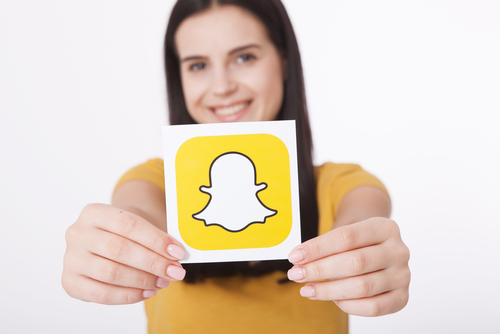 Recently, a New York-based plastic surgeon made headlines when his Snapchat surgery video raised some eyebrows at the American Society of Plastic Surgeons’ (ASPS) annual meeting in Orlando, Florida. The doctor was seen on the social media site dancing around the operating room, joking and making cute videos while his patient lay unconscious on the operating table. But while the patients in his videos may have consented to having their surgery shared on social media channels, they may not have realized what they were agreeing to when they signed that waiver. As a result, the ASPS has proposed a code of conduct for surgeons to adhere to at all times – but especially on social media, and especially during surgery.
Recently, a New York-based plastic surgeon made headlines when his Snapchat surgery video raised some eyebrows at the American Society of Plastic Surgeons’ (ASPS) annual meeting in Orlando, Florida. The doctor was seen on the social media site dancing around the operating room, joking and making cute videos while his patient lay unconscious on the operating table. But while the patients in his videos may have consented to having their surgery shared on social media channels, they may not have realized what they were agreeing to when they signed that waiver. As a result, the ASPS has proposed a code of conduct for surgeons to adhere to at all times – but especially on social media, and especially during surgery.
At Chau Plastic Surgery, we use social media to interact with our patients and potential patients, and to share before and after photos. All the photos we post have the full consent and cooperation of the patient in the photo. In photos where the patient’s body parts are visible, we will not post the patient’s face. In photos of the patient’s face (such as for facial plastic surgery), we will not post photos of the rest of the patient’s body. This allows our patients to maintain anonymity if they choose.
Patients may also opt to only allow their photos to be shown in-office to other patients considering the same procedure. These photos give other patients an idea of what the doctor is capable of doing and what kind of results they can expect from their own surgery, including final results and the placement and appearance of scars.
Patients who are not willing to share any of their surgical journey with others are always free to withhold their consent to share photos. When a patient does not consent to have photos shared, those photos remain in their file and will only be seen by the doctor and medical staff on an as-needed basis.
Occasionally, we may film a portion of an exam and post that photo to our YouTube channel with the patient’s consent. The patient must first consent to the filming of the video. Videos may be used for research or clinical purposes. If the patient consents to the video being taken but not shared on social media or with other patients, the video will not be shared. If the patient does consent, the video may be shared, but none of our videos is posted to sites like Snapchat. The videos on YouTube are posted for educational purposes only.
If any images or video are taken during surgery, you can rest assured that we will not use those images to make music videos, viral videos or edgy independent films. Surgical videos are taken for medical purposes only, and in a professional and dignified manner. You can also rest assured that the person taking the video is properly scrubbed for the operating room, and is taking the proper precautions with video equipment. Nobody is using their phone to shoot your surgery and then putting it back in their pocket and passing the germs from their dirty phone onto your body. If a video is shot by phone, the videographer is required to take all necessary cleaning and sanitizing precautions before assisting with surgery, and no unsanitary equipment will be allowed anywhere near the patient.
During your procedure, your safety is our No. 1 concern, and we will never compromise your safety to gain “likes” or followers. So, while the ASPS is working to draft a professional code of conduct, it won’t change anything at Chau Plastic Surgery, because we already adhere to our own high standards for conduct, voluntarily.

